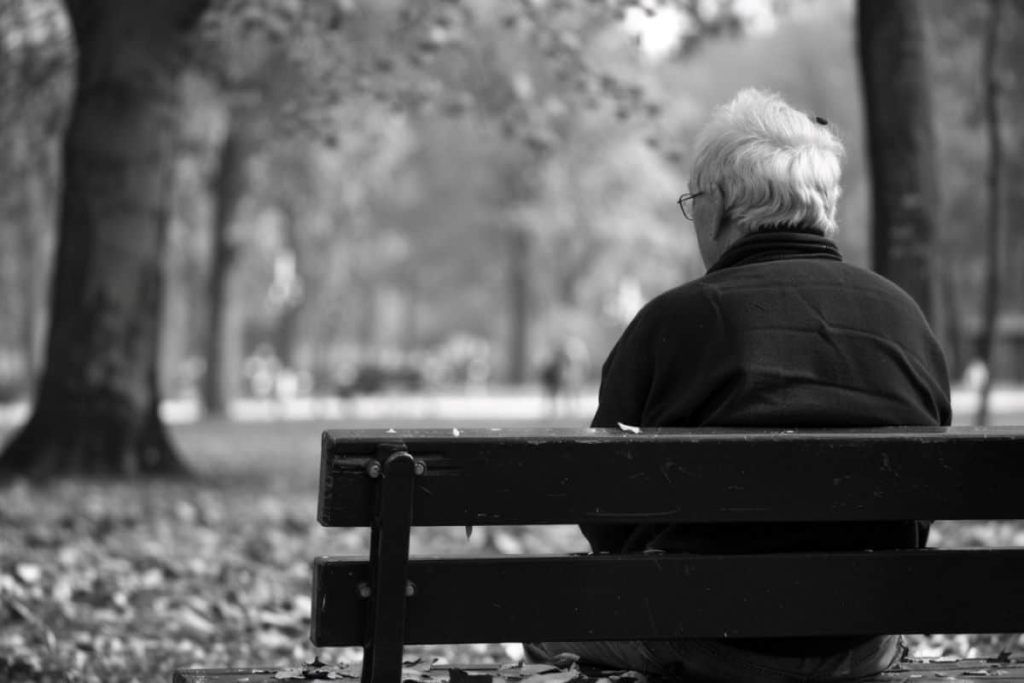summary: A new study suggests that loneliness has a more detrimental effect on memory in older adults than social isolation. While people who are both socially isolated and lonely experience the most severe memory decline, loneliness alone can also cause significant memory decline.
This study highlights the need for targeted community programs to address these issues. These findings highlight the importance of addressing loneliness to support the cognitive health of an ageing population.
Key Facts:
- Larger impact: Loneliness has a greater negative effect on memory than social isolation.
- Research period: The study looked at middle-aged and older adults over a six-year period.
- Community Programs: Targeted interventions are needed for people who feel isolated and lonely.
sauce: University of Waterloo
Nearly a third of Canadians feel lonely, and research from the University of Waterloo suggests that loneliness has a greater negative impact on memory than social isolation, but both pose significant risks to an ageing population.
Loneliness is a subjective emotion that people feel even when engaged in social activities. Loneliness is often associated with depression and increased stress hormones and may contribute to memory problems.
Waterloo researchers looked at four combinations of social isolation and loneliness and their effects on memory in middle-aged and older adults over a six-year period. These combinations included social isolation and loneliness, social isolation only, loneliness only, and neither.
“As expected, socially isolated and lonely people experienced the greatest decline in memory, and that decline worsened over the six-year period,” said lead author Ji Won Kang, a doctoral student in the University of Waterloo’s School of Public Health Sciences.
“However, we were surprised to find that loneliness alone had the second-largest effect on memory, even though many studies have reported the risks of social isolation without taking loneliness into account.”
People who are not lonely but are socially isolated may not be taking part in social activities, but may still be stimulating their intellectual abilities through solitary activities such as reading, gaming, or hobbies that improve memory and stimulate the brain.
Kang hopes the findings highlight the need for community programs, especially targeting older adults who are socially isolated and lonely and therefore most at risk of memory loss.
“Lonely older adults often have lower incomes than other groups and may have structural barriers or health conditions that prevent them from connecting with their community,” she said.
“Solutions could include implementing transport services or home visiting programmes – addressing the social issues that lead to their isolation.”
Simply lonely groups are the next priority and require a different approach.
“We need to know what is causing their loneliness,” Kang said. “They may be socially connected and intimately connected, but their marriage may be falling apart, for example, so they would benefit from counseling.”
The study was an interdisciplinary project between the University of Waterloo’s School of Public Health Sciences and School of Statistics and Actuarial Sciences.
About this research news on loneliness and memory
author: Pamela Smith
sauce: University of Waterloo
contact: Pamela Smith – University of Waterloo
image: Image courtesy of Neuroscience News
Original Research: Open access.
“Exploring the differential effects of social isolation, loneliness, and their combination on memory in older adults: A 6-year longitudinal study from the CLSA” by Kang Ji-won et al. Gerontology and Geriatrics Archives
Abstract
Exploring the differential effects of social isolation, loneliness, and their combination on memory in older adults: A 6-year longitudinal study from the CLSA
Memory plays an important role in cognitive health, and although social isolation (SI) and loneliness (LON) are recognized risk factors for general cognition, their combined effects on memory have not been well studied in the literature.
In this study, we used three waves of data over 6 years from the Canadian Longitudinal Study of Aging to investigate whether SI and LON are individually and jointly associated with memory in community-dwelling middle-aged and older adults (yeah = 14,208).
LON was assessed with the question: “During the past week, how often did you feel lonely?”
SI was measured using indicators based on marital/cohabitation status, retirement status, participation in social activities, and social network ties.
Memory was assessed by a combination of Z scores from two administrations of the Rey Auditory Verbal Learning Test (immediate recall, delayed recall).
We conducted analyses using all available data across the three time points, including participants with missing covariate data. Linear mixed models were used to regress the composite memory score onto SI and LON, adjusting for sociodemographic, health, functional ability, and lifestyle variables.
Experiencing both SI and LON had the largest adverse effect on memory (least squares mean: -0.80 [95 % confidence-interval: -1.22, -0.39]), followed by LON alone (-0.73 [-1.13, -0.34]), SI alone (-0.69 [-1.09, -0.29]), and finally, not lonely or isolated (-0.65 [-1.05, -0.25]Sensitivity analyses confirmed this hierarchy of effects.
Policies designed to improve memory in middle-aged and older adults may be more effective if they target the alleviation of both SI and LON, rather than either one separately.


